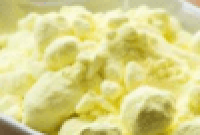Are you looking for a natural way to treat your phlegm cough? Phlegm cough can be a disruption to your daily activities. However, not all diseases require medication, and most people tend to opt for natural remedies as their first choice when facing a disease. In this article, we will provide you with some natural ingredients that you can use as a home remedy for phlegm cough.
Causes of Phlegm Cough
Before we dive into the remedies, let’s take a look at what causes phlegm cough. Some of the common causes of phlegm cough include viral and bacterial infections, bronchitis, pneumonia, asthma, chronic obstructive pulmonary disease (COPD), tuberculosis, and post-nasal drip.
Natural Remedies for Phlegm Cough
1. Ginger and Betel Leaves
The combination of ginger and betel leaves can help alleviate your phlegm cough. To make this remedy, simply boil betel leaves and ginger, then drink the resulting water. You can consume it at least once a day.
2. Warm Water
Drinking warm water is a simple yet effective way to treat phlegm cough. Water is essential to our body in any condition, but drinking more warm water than usual when you have a phlegm cough can help loosen the mucus in your throat.
3. Lime, Soy Sauce, and Honey
Lime contains essential oils that can help relax the muscles in your respiratory system. Meanwhile, the soy sauce and honey can soothe the throat, making it less irritated. Mix all three ingredients together and consume the mixture at least once a day.
4. Cloves and Thyme Tea
Both cloves and thyme have antibacterial properties that are effective in combating respiratory infections. To make the tea, mix cloves and thyme with boiling water, and drink it while it’s still hot.
5. Salt Water Gargle
Gargling with salt water can help reduce the phlegm or mucus in your throat while also killing bacteria in your mouth and throat. Mix half a teaspoon of salt with warm water and gargle it for at least 30 seconds.
Phlegm Cough Duration
The duration of phlegm cough can vary, depending on the severity and cause of the cough. In most cases, a phlegm cough lasts for up to three weeks, but if it lasts longer than that, it’s best to consult a doctor.
Difference between Phlegm Cough and Dry Cough
It’s essential to differentiate between a phlegm cough and dry cough. A phlegm cough is usually caused by the buildup of mucus or phlegm in your chest. On the other hand, a dry cough is caused by throat irritation, which results in a non-productive cough. The remedies mentioned above are best for treating phlegm cough, not a dry cough.
Conclusion
Phlegm cough can be annoying and uncomfortable, but it’s vital to treat it before it gets worse. You can use natural remedies such as ginger and betel leaves, warm water, lime, soy sauce, and honey mixture, cloves and thyme tea, and salt water gargle as a first line of defense in treating your phlegm cough. However, if the cough persists for too long, it’s best to see a doctor to avoid any further complications.




